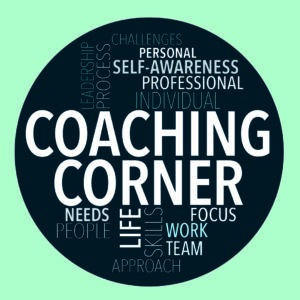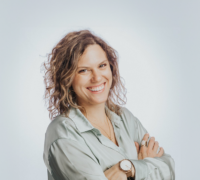
Letting go to grow: How one entrepreneur reclaimed his life and business
Frank's transformation from overwhelmed investor to empowered leader demonstrates how coaching and collaboration enabled him to stand back, delegate, and recover his life....

by Audrey Bartolomei Published November 30, 2024 in Coaching Corner • 5 min read
 As a leader, you face complex and intricate challenges every day. At times it can be hard to pinpoint or even articulate these challenges. But until you can fully address and resolve them, they have the potential to stall your professional and personal growth, your career, and your team’s success. This is where professional coaching comes in.
As a leader, you face complex and intricate challenges every day. At times it can be hard to pinpoint or even articulate these challenges. But until you can fully address and resolve them, they have the potential to stall your professional and personal growth, your career, and your team’s success. This is where professional coaching comes in.Riley is a young, high-potential global brand director with a large multinational. Driven and ambitious, Riley has consistently dedicated much time to the role. Keen to be admired and well-liked by colleagues, Riley has become something of a perfectionist: nothing but perfect results every time will do. The problem is that perfection is an illusory and unattainable goal. Over the last few months, Riley has become increasingly detached from realistic objectives and is trying to control everything in pursuit of perfection, while failing to disconnect enough from the (largely self-imposed) pressures of work. Inevitably, this has led to an episode of significant burnout.
One morning, Riley is simply unable to get up and out of bed and head into the office. She doesn’t have the emotional or physical resources to continue working at this pace and with unrealistic levels of control and self-imposed accountability.
Feeling like a failure and unsure how to bounce back from burnout, Riley consults a psychiatrist who helps her get back on her feet and back into work. From here, she seeks the help of an executive coach to find more sustainable ways of working.
Riley is particularly responsive to somatic exercises, such as breathing techniques, guided meditation, dance, and other physical, somatic workouts, as she forges a new sense of equilibrium.
Riley’s coach gets to work immediately, helping Riley to see that in pursuing perfection and in trying to fit in and be popular, Riley has come adrift from an authentic and, importantly, compassionate sense of herself. The coach deploys a couple of techniques. First, she helps connect Riley with her “inner child” – a more holistic version of selfhood. Then, they work on separating some of the different typologies of “saboteurs” in her life: the urge to please, to be perfect, to control, and to (over) achieve from a real and critical need: to accept, to nurture, and to prioritize herself. Riley’s coach helps her to see that the urge to be admired and respected by others can lead to self-sabotaging behaviors. And while these behaviors can help drive things like performance and success temporarily – dovetailing with healthy ambition, drive, and a sense of excellence, in the case of Riley – ultimately, they are inauthentic. They help us achieve what we want in the short term, but over time, they deny our holistic self and do not service our real needs; in Riley’s case, she needs to feel certainty, love, and significance.
Riley is of South American origin and is working in a European cultural context. She feels she has been struggling to “fit in;” attempting to define herself through the lens of other people and through her achievements. But in doing so, she has failed to prioritize her own needs or to service her own, innermost wants or desires. As a result, the genuine approbation that she has been seeking from others has failed to materialize. More importantly, she has failed to feel this kind of “love” for herself. In its place, she has come to feel resentment and a sense of failure so strong it has temporarily derailed her career.
Armed with these insights, Riley and the coach get to work on techniques and tactics to help Riley reconnect with her inner motivation – and feelings of joy and authenticity. They try neurolinguistic programming techniques such as palm-pressing to connect with the present moment. Riley is particularly responsive to somatic exercises, such as breathing techniques, guided meditation, dance, and other physical, somatic workouts, as she forges a new sense of equilibrium between self, mind, and body.

“Part of the success of Riley’s coaching journey is tied to being open in this way: having reached a feeling of rock bottom, Riley is willing to start over and do what it takes to feel better.”
Working with the coach, Riley starts to connect more with feelings of joy and satisfaction that stem from her own needs and wants, and not from the urge to please or to be perceived in a certain way by other people. Open to trying new techniques and reevaluating her sense of success and accomplishment, Riley also starts to reframe the entire experience of burnout. Instead of stalling her career, burnout has been an opportunity to stop, to step back and reflect deeply and authentically on what she wants – and to assert this over and above what she believes other people have wanted from her.
Part of the success of Riley’s coaching journey is tied to being open in this way: having reached a feeling of rock bottom, Riley is willing to start over and do what it takes to feel better and to reorient towards a healthier and more resilient future. In this sense, she is able to redefine burnout as a “gift” that she can use; one that is helping her to better align her performance with her wellbeing.
Riley’s coaching journey is helping her to see the pitfalls inherent in pleasing others and pursuing perfection. Instead, she is beginning to understand how taking off the mask to reveal and to inhabit your whole, authentic self is a way to connect more deeply with work; to perform at new and different levels of impact and influence; and to inspire others in more meaningful ways. As she looks towards the next phases of her career, Riley reports feeling more “alive and awake from within.”
In this series, we share real-world cases that come from our work with leaders. Read on to discover the specific challenges that face each of the leaders we have coached – and the insights that have helped them navigate their multifaceted challenges to find their own solutions. How might these insights and questions apply to you?

Audrey is a passionate and innovative Professional Certified Coach dedicated to guiding individuals towards joy and fulfillment in their lives. In 2019, she founded Firstep Coaching, driven by her mission to empower individuals to unlock their true potential. Audrey’s approach is rooted in Neuro-Linguistic Programming (NLP) techniques and mental fitness strategies, blending performance enhancement with holistic well-being practices. She specializes in working with executives and teams, equipping them with the tools to excel not only in the workplace but also in all aspects of life. With a keen focus on the younger generations, Audrey is particularly adept at coaching millennials and Gen Z individuals, understanding their unique needs and aspirations. Through her guidance and support, she helps them navigate challenges and seize opportunities, ultimately enabling them to thrive in both their personal and professional pursuits.

May 9, 2025 • by Vincent Pieterse in Coaching Corner
Frank's transformation from overwhelmed investor to empowered leader demonstrates how coaching and collaboration enabled him to stand back, delegate, and recover his life....

May 2, 2025 • by Sunita Sehmi in Coaching Corner
Sarah, a senior manager at a global pharmaceutical company, excels in her role but feels overwhelmed by workplace demands. Struggling to assert herself and make aligned personal decisions, she recognizes the need...

February 13, 2025 • by Nadine Hack in Coaching Corner
Through mentoring, team empowerment, and striking a balance between leadership and personal development, Susan, a female CEO, overcomes micromanagement and burnout....

January 31, 2025 • by Angelica Adamski in Coaching Corner
In our Coaching Corner series, we share real-world coaching cases that come from our work with leaders....
Explore first person business intelligence from top minds curated for a global executive audience